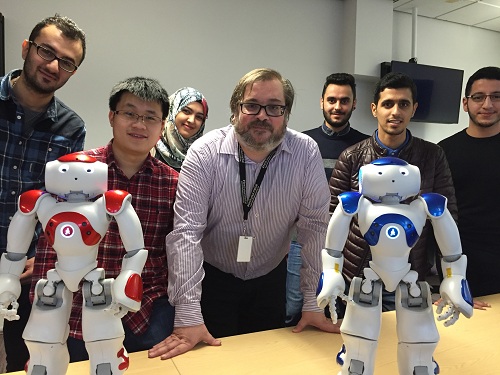More than a million reasons for Science students to smile
Date 15.02.2016
15.02.2016
Science students at the University of Northampton are benefiting from more than £1million of investment in facilities.
The University has matched the near-£600,000 funding it received from the Higher Education Funding Council for England (HEFCE) to support science teaching and learning, meaning almost £1.2m is being invested in the subject area.
John Sinclair, Dean of the School of Science and Technology at the University, said: “We are delighted to be able to make such a major investment in the facilities and equipment.
“The funding means we have been able to upgrade in several areas, including our Computing labs in the School of Science and Technology, which we needed to expand due to the phenomenal success we have had in recruiting undergraduates for our Computing, Games Development, Engineering and Geography courses.”
Around 100 new workstations have been created to meet demand, while PCs and Macs have also been upgraded. In addition, the new lab layouts have allowed the marked improvement of their audio-visual displays in each one.
Later in 2016, some of the money will be used to roll out virtual desktop infrastructure which will allow Geography and Engineering students to access their specialist software for Geographical Information Systems (GIS) and Computer Aided Design from any machine.
The windfall has also been used by Computing to purchase specialist software and a ‘family’ of social robots. There has also been investment in specialist laboratory and field equipment for Engineering and Environmental Science, and a much-needed upgrade for some laboratory equipment in the University’s Institute for Creative Leather Technologies.
Field-based sampling equipment has also been secured for Environmental Science and Geography students, while Engineering has made a number of notable purchases, including a 3D printing system; a computer numerical control manufacturing centre capable of making parts from metal direct from a digital design file; and an acoustic emission system which diagnoses faults and modes of vibration in high technology systems such as jet engines, car engines, aeroplanes, high speed trains and other transport.
Scott Turner, Associate Professor in Computing and Immersive Technologies, is pictured with Computing students and the robots.